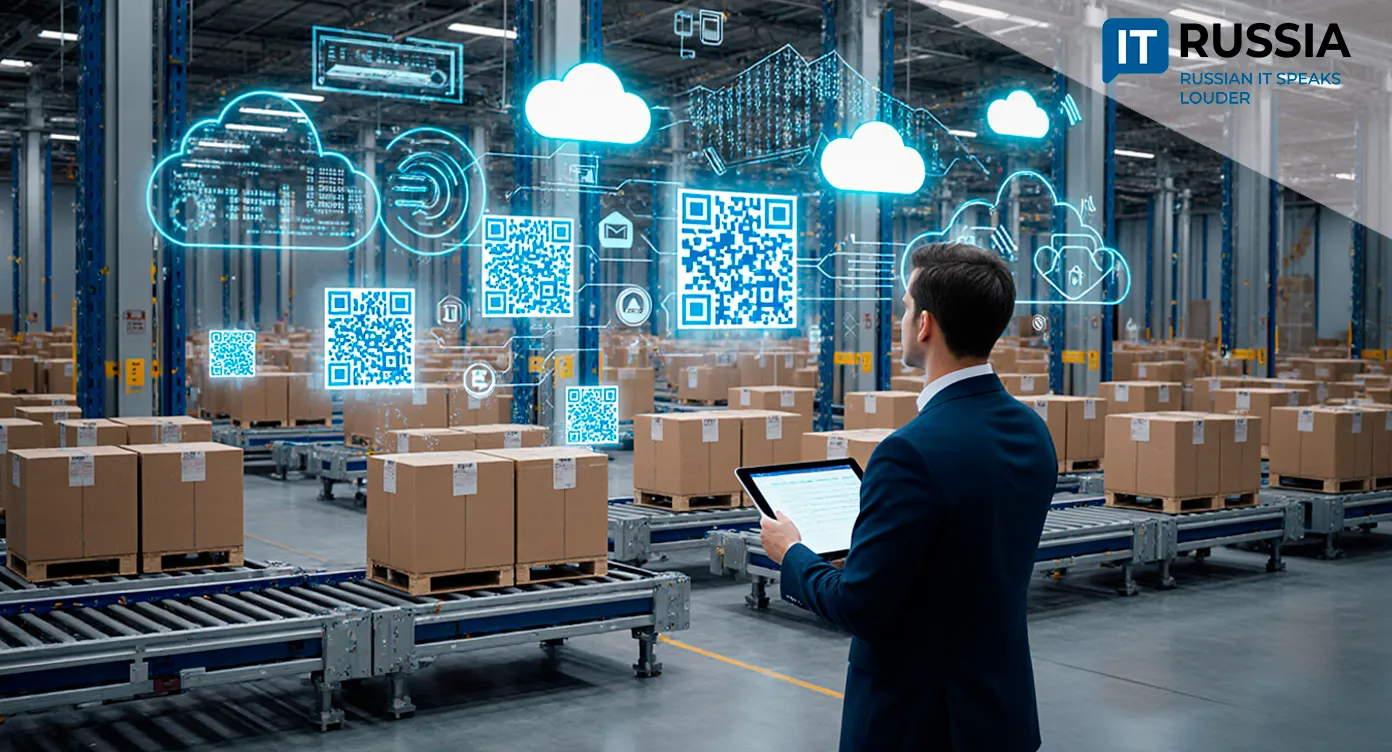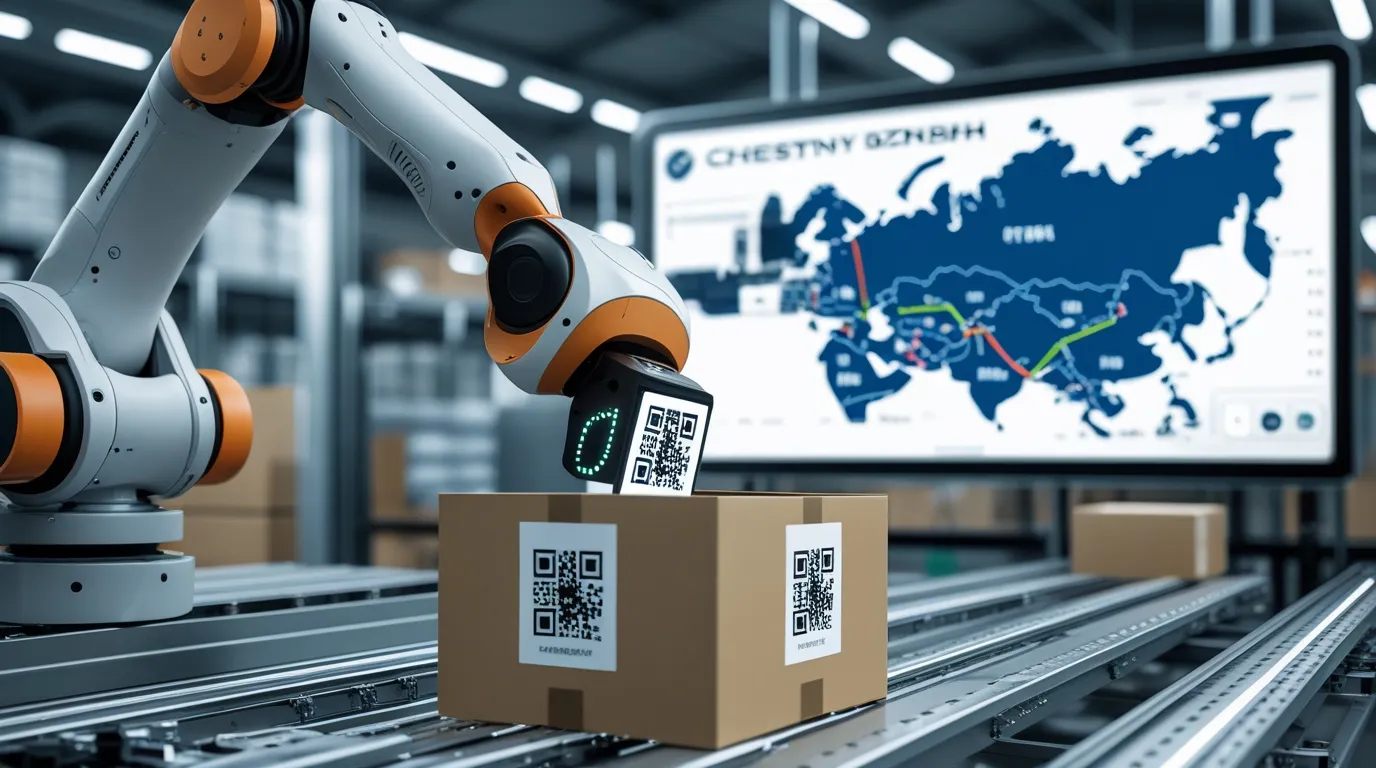AI to Enhance Product Labeling in Russia
Russia is exploring the integration of artificial intelligence into its national product labeling system, a move expected to protect consumers, increase transparency in the marketplace, and strengthen the country’s technological independence.

AI in Labeling
Harold Vlasov, Managing Director of the logistics operator NC Logistic, stated in an interview that artificial intelligence could soon be integrated into Russia’s product labeling system. The goal is to enable automatic data analysis and smarter distribution of goods across regions. This advanced control mechanism would not only protect consumers from counterfeit products but also make supply chains more transparent.
Vlasov noted that the current labeling system, known as "Chestny ZNAK" ("Honest Sign"), has already transformed business models for manufacturers, retailers, and logistics providers, requiring them to integrate with the national data exchange system and comply with new digital regulations.
The program covers a wide range of product categories, many of which cannot be legally sold without proper labeling. Today, the labeling system faces increasing strain as logistics networks adapt to higher volumes and more complex distribution tasks. By incorporating AI, logistics operators could evolve into data-driven service providers, while manufacturers would face new demands for digital accounting and analytics investment.

The result: a more transparent market, reduced counterfeit share, and the dismantling of harmful consumer schemes. For the government, the reform would strengthen digital infrastructure, advance technological sovereignty, and create opportunities for domestic AI development and standardization.
Scaling and Integration
Once AI-based labeling tools are tested in Russia, they could be exported to developing countries where product traceability systems are still emerging. Potential business models include licensing and SaaS-based services that sell analytics, predictive modules, and monitoring solutions.
However, international expansion will require compliance with global data protection and security standards. Domestically, pilot projects will begin with select product categories and regions with strong digital infrastructure, before scaling across all industries.
AI will help forecast demand, optimize regional distribution, and detect anomalies or risks. Integration with tax, customs, and regulatory systems is also expected. Small businesses will require technical support, subsidies, and adaptation standards to meet new digital requirements. Legislation will need to define clear rules for accountability, data protection, and algorithmic audits.
A Complex but Promising System

Launched in 2018, "Chestny ZNAK" has progressively expanded to cover more product categories — and by 2025, it will include light industry, cosmetics, food products, and more. Recent updates added new features such as the cancellation of "withdrawal from circulation" documents for certain goods, and aggregation functions for tracking transport packaging and warehouse data. The system also continues to refine detailed procedures — including beer labeling and ownership transfers of keg identification codes. In 2025, the government announced a voluntary labeling experiment for sanitary and household goods through August 2026.
Currently, "Chestny ZNAK" operates in 89 regions and integrates with 27 federal agencies, expanding oversight and enforcement capabilities. Russia is also exploring the labeling of AI-generated digital content to combat deepfakes. The Ministry of Digital Development is working with the Russian Academy of Sciences’ Institute for System Programming and Yandex to design micro-artifact–based labeling technology for AI content — a step toward transparent digital ecosystems.

The Future Standard
Integrating AI into Russia’s labeling framework is a natural next step. Experts anticipate pilot projects in the next one to three years focusing on analytics and regional supply optimization. Over time, AI is expected to become the standard for identifying irregularities, forecasting demand, and autonomously adjusting supply chains. In the long term, the collaboration between AI and labeling could lay the foundation for a "smart market", where every product is traceable, analyzed, and managed in real time.
The challenge will be ensuring that the system enhances transparency without becoming an excessive surveillance tool — raising important questions about privacy and algorithmic responsibility. For small and medium-sized enterprises, the government is expected to offer support through subsidies, plug-and-play cloud modules, and simplified integration.
Russia’s success in this area could pave the way for exporting trusted, competitive AI-driven labeling technologies worldwide.










































